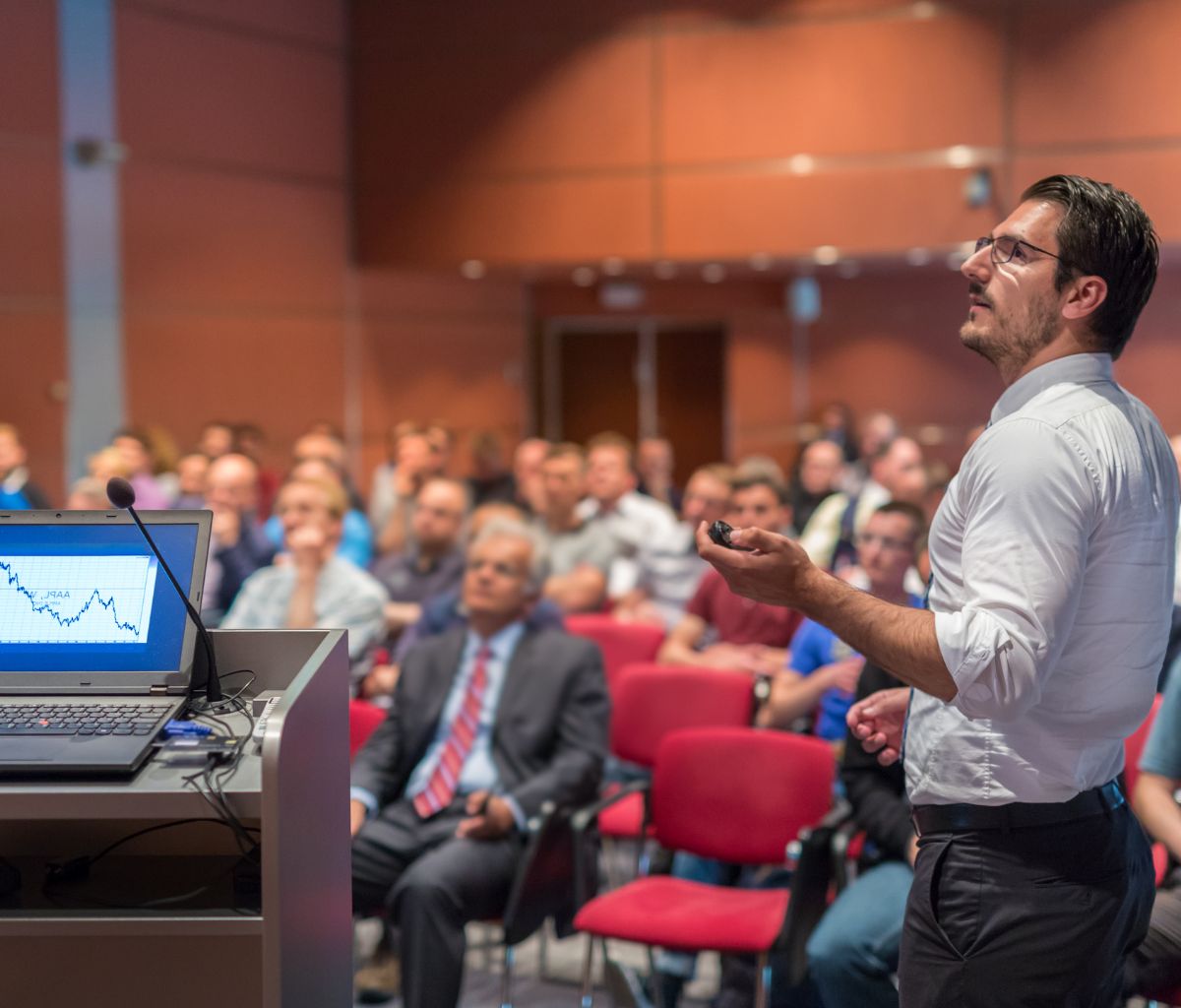Are you an executive who wants to break away from the corporate world and speak to audiences around the globe? Do you have a story to tell that others would pay to listen to? Is being a “motivational speaker” your next career opportunity?
Since 1983 I’ve been travelling the world as what some would call a motivational speaker. So, is that what I am? Maybe. Let me explain. I’ve actually been traveling the world as an expert who also speaks, and my expertise is in the world of customer service and experience. Even with the title of customer service and experience expert, I’m still referred to as a motivational speaker.
Are my speeches entertaining? I hope so. I even joke with my clients that if the audience doesn’t laugh, I don’t get paid.
Are my speeches educational? Absolutely! That’s why clients hire me.
Are my speeches motivational? The short answer is yes. So, does that make me a motivational speaker? In a sense. Here is my core belief about every speaker who steps on stage:
All speakers must be motivational.
They must have a delivery style that is good enough and content that is strong enough to motivate their audience members to start doing something, stop doing something, change something, etc. That’s why I believe that every speaker is, in some way, a motivational speaker.
Now, there are people like Tony Robbins and the late, great Zig Ziglar who I classify as traditional motivational speakers. These gurus have helped their audiences reach new levels of success and much more. They focus on achieving personal and professional goals, breaking through barriers and being better than you ever thought possible. They motivate you to action, just like any good speaker in any subject must do. In the case of the Tony Robbins-type of speaker, the term “motivational speaker” is as much a title as it is a description of what they do.
I bring all of this up because over the years I’ve been asked by many people how to become a motivational speaker. The term “motivational speaker” has become a generic term to describe a professional speaker. What they really mean is that they want to be paid to speak in front of an audience. Some of these people are high-level executives who are looking to leave the corporate world and want to share their knowledge as they wind down their professional careers. Others are looking to break away from traditional employment. To them, the idea of being paid to speak is appealing. Some people have a story or passion and a yearning to share it with others.
Regardless of the reason, becoming a speaker appeals to many, so I thought this article could give those people a head start.
If I’ve done my job – and the same goes for any speaker – the speech will move the audience to take some kind of action.
Now that we have an idea of what a motivational speaker is – someone who has a successful speech that gets the audience to think and take action on virtually any topic – let’s talk about how you become one.
There are entire books about how to break into the speaking business. A book is a perfect place to start. Just go to Amazon.com and type in the term “Professional Speaking” and you’ll find plenty of choices. My favorite authors in this genre include Lois Creamer, Alan Weiss and Brian Tracy. I also recommend this compilation of content from members of the National Speakers Association.
One of the best business decisions I ever made was joining the only true industry association in the U.S. for professional speakers, the National Speakers Association. Joining and taking advantage of its education, especially the conferences and meetings, will cut years off your learning curve. To me, this is a requirement if you are a full-time or part-time professional speaker.
If you want to get up to speed fast, my friend Josh Linkner, one of the most successful speakers in our industry, has a bootcamp that has been attended by industry newcomers as well as award-winning, Hall-of-Fame speakers. His 3-Ring Circus program is a deep dive into getting booked and getting booked often.
Looking to hone your speaking skills? Consider a speaking coach. My coach is Patricia Fripp, who is a speaking coach to celebrities, professional speakers and executives who make corporate presentations. She also has an online speaking course that can get you started.
On the topic of honing speaking skills, I’m often asked about Toastmasters. While this may not be the place to learn about how to build a successful career as a professional speaker, it is a good place to get better at speaking in front of an audience, especially in the beginning. Many of the people in Toastmasters just want to give better presentations. Some “graduate” and become amazing professional speakers.
Finally, there is a great resource that is free. SpeakerNetNews is a weekly newsletter that has tips on everything related to the speaking industry: travel, software programs, proper use of slides, marketing, sales … you name it, it’s probably there. Once you subscribe, you can also access archives where content is arranged by topic.
If the idea of professional speaking – or motivational speaking – is in your sights, the above resources are a great starting point. Of course, there is much, much more than what I’ve mentioned. But this can help you begin building a career that will hopefully fulfill you while you inspire others. If you’ve ever wanted to change the world, this is your chance to do it – one motivational speech at a time!






